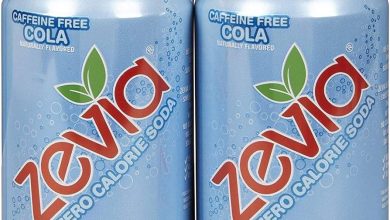Natto – Nutritional Information & Benefits
Natto, a traditional Japanese food made from fermented soybeans, offers a rich array of nutrients that contribute to overall health. It is known for its distinct flavor, sticky texture, and potent health benefits. As a source of high-quality plant-based protein, natto is a great choice for those looking to enhance their diet with nutritious ingredients.
Nutritional Breakdown (per 100g serving)
| Nutrient | Amount |
|---|---|
| Energy | 211 kcal |
| Protein | 19.4 g |
| Fat | 11.0 g |
| Saturated Fats | 1.59 g |
| Carbohydrates | 12.68 g |
| Fiber | 5.4 g |
| Sugar | 4.89 g |
| Calcium | 217 mg |
| Iron | 8.6 mg |
| Magnesium | 115 mg |
| Phosphorus | 174 mg |
| Potassium | 729 mg |
| Sodium | 7 mg |
| Zinc | 3.03 mg |
| Copper | 0.667 mcg |
| Manganese | 1.528 mg |
| Selenium | 8.8 mcg |
| Vitamin C | 13.0 mg |
| Thiamine (B1) | 0.16 mg |
| Riboflavin (B2) | 0.19 mg |
| Niacin (B3) | 0.0 mg |
| Vitamin B6 | 0.13 mg |
| Folate (B9) | 8.0 mcg |
| Vitamin B12 | 0.0 mcg |
| Vitamin A | 0.0 mcg |
| Vitamin E | 0.01 mg |
| Vitamin D2 | 0.0 mcg |
Health Benefits of Natto
Natto is rich in protein, making it a wonderful choice for vegetarians and vegans who may need alternative protein sources. It contains essential amino acids, contributing to muscle repair, immune function, and tissue regeneration.
High in Calcium & Magnesium: With 217 mg of calcium and 115 mg of magnesium per 100g serving, natto supports strong bones and teeth, helping prevent conditions like osteoporosis.
Rich in Iron: Natto provides a good amount of iron (8.6 mg), which is essential for the production of red blood cells and for preventing iron deficiency anemia.
Probiotic Content: As a fermented food, natto contains beneficial probiotics that support gut health. These probiotics may help improve digestion and support the immune system.
Sodium & Potassium Balance: Despite being a fermented food, natto is low in sodium, containing only 7 mg per serving. This is beneficial for maintaining healthy blood pressure levels. Additionally, the high potassium content (729 mg) promotes heart health by balancing sodium levels in the body.
Full of Fiber: With 5.4 grams of fiber, natto supports digestive health and can help regulate blood sugar levels, contributing to a lower risk of heart disease.
Allergen Information
Natto is made from soybeans, which are a common allergen. Individuals with a soy allergy should avoid consuming natto. While it is a healthy food choice for many, those with specific allergies or sensitivities to soy should consult with a healthcare provider before incorporating natto into their diet.
Dietary Preferences
Natto is naturally vegan and vegetarian, making it an excellent protein source for plant-based diets. It is also gluten-free and suitable for individuals who are following a gluten-free diet. However, it should be noted that natto contains a small amount of sodium, so those on a low-sodium diet should be mindful of portion sizes.
Conclusion
Natto is a nutrient-dense food that provides an impressive range of vitamins and minerals, making it an excellent addition to a balanced diet. Whether enjoyed as a traditional Japanese dish or incorporated into modern recipes, its health benefits are sure to support overall wellness. Its rich protein content, probiotic properties, and bone-strengthening nutrients offer a unique, plant-based alternative for those looking to improve their nutrition.










